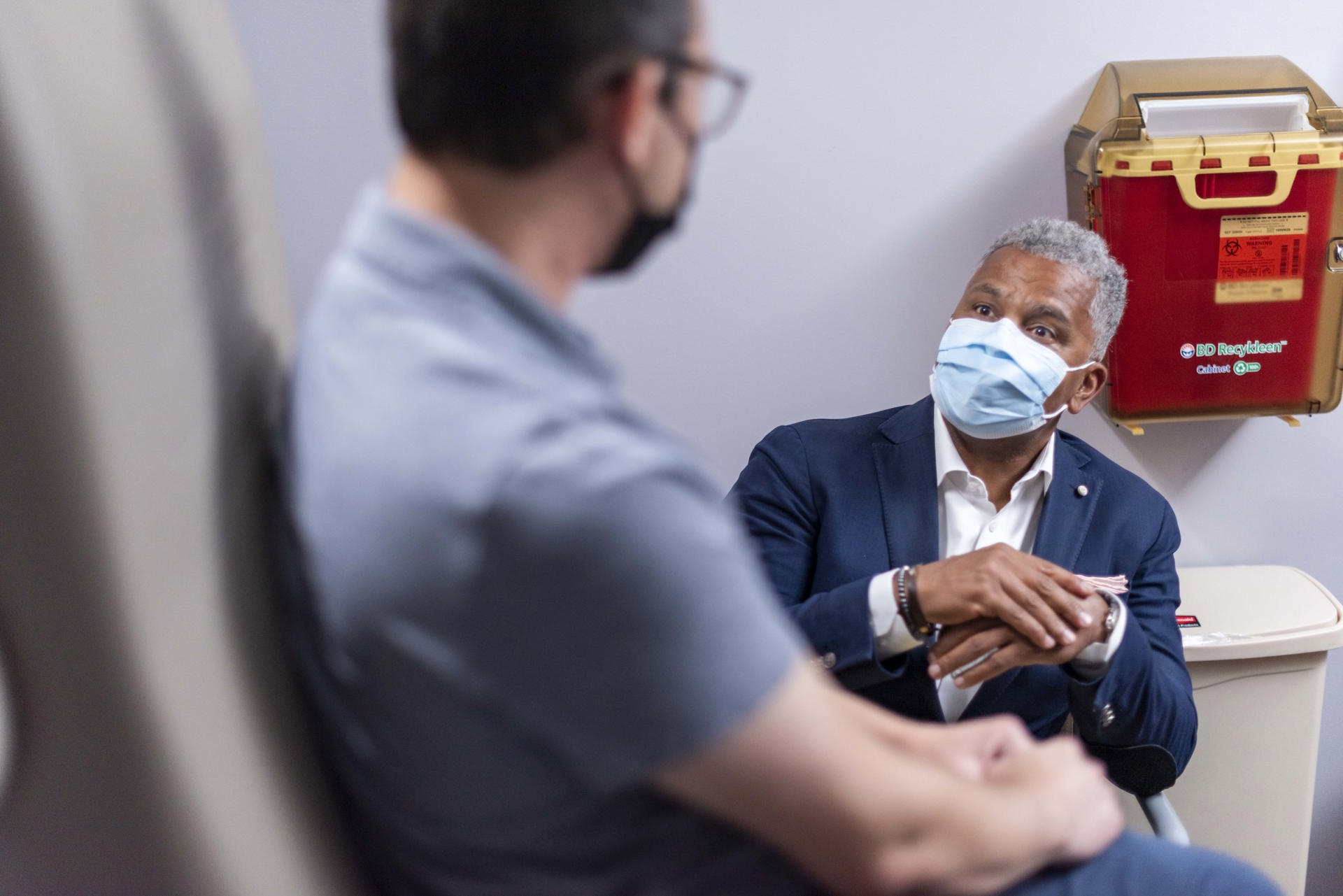Screening Options
Screening for colorectal cancer saves lives, and should begin at age 45 for people at average risk of developing colorectal cancer, according to guidelines issued by the U.S. Preventive Services Task Force. People with a family history of colorectal cancer should be screened 10 years earlier than the youngest age of diagnosis in their family.
Unfortunately, the CDC estimates that only about 70% of U.S. adults aged 50 to 75 are up to date on their screening, and much of the population may not be aware of all the screening options available to them.
There are several options available for colorectal cancer screening:
- Visual exams: Colonoscopy is considered the gold standard for colorectal cancer screening. With this test, physicians use a flexible tube called a colonoscope to see the inside of the entire colon and rectum. During this test, physicians can remove suspicious growths to biopsy (test) them for cancer. They can also remove pre-cancerous polyps that have the potential to develop into cancer. A colonoscopy should be performed every 10 years or more frequently, depending on the results of the test and if there’s a family history of the disease.
- Other visualization tests include a CT colonography (virtual colonoscopy) or a flexible sigmoidoscopy, which looks at the lower colon and rectum. These tests should be performed every 5 years.
- Stool-based tests: Stool-based tests include the fecal immunochemical test (FIT)and guaiac-based fecal occult blood test, which detect hidden blood in the stool. Stool DNA tests can detect blood in the stool and abnormal changes through DNA analysis. These tests should be performed every one to three years depending on the type of test used.
American College of Surgeons experts recommend that colonoscopy remains the gold standard of screening options for colorectal cancer, but overall, choosing any screening option is better than not getting screened at all.
How to Find Quality Cancer Care
There are many options for where to receive care after a colorectal cancer diagnosis. Patients should look signifiers of quality such as:
- Commission on Cancer accreditation: CoC accreditation means a cancer center has undergone a rigorous evaluation and is committed to providing high-quality cancer care by demonstrating compliance with the CoC standards.
- National Accreditation Program for Rectal Cancer (NAPRC) accreditation: Programs accredited by the NAPRC have demonstrated compliance with the NAPRC standards, which are focused on facilitating a multidisciplinary, holistic approach to treating patients with rectal cancer.
These two accreditation programs are among the many ACS Quality Programs through which hospitals can become an ACS Surgical Quality Partner. The ACS Surgical Quality Partner diamond is a signifier that can help patients seek out hospitals committed to delivering the highest quality of care.
Recursos en Español
Instituto Nacional del Cáncer - Cáncer colorrectal
Cáncer de colon o de recto



